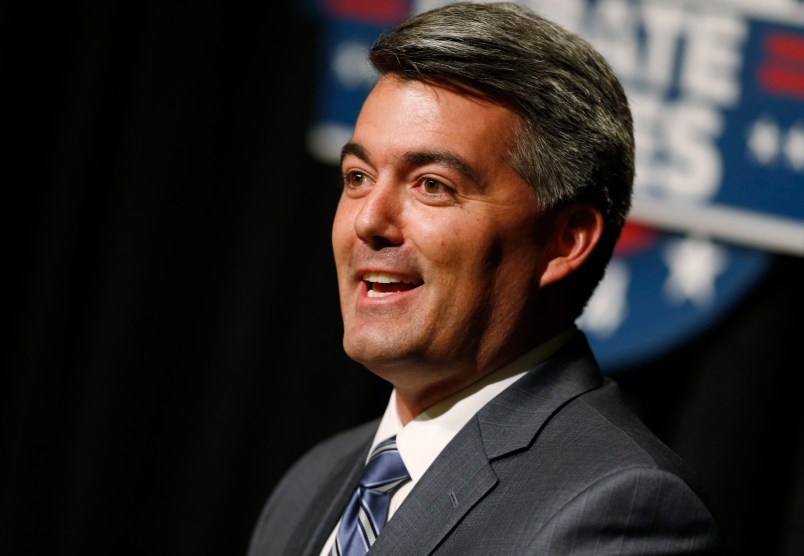TPM Reader AB reflects on the Colorado results …
I’m sure you all are inundated right now with readers offering their unsolicited opinions on what happened Tuesday, so forgive me if I’m just adding to an unwanted deluge.
But as a relative newbie to Colorado and its politics, I’ve been thinking a lot about newspaper endorsements ever since Cory Gardner’s victory was called Tuesdaynight. There was an interesting piece over at Vox a couple weeks ago running down the political science on endorsements. The broad strokes are that there’s reason to believe such endorsements can have an effect, particularly in close races.
We’re obviously a little too close to the event for detailed, insightful post-mortems of Senator Udall’s defeat. But as those post-mortems are written, I’d be interested in seeing any insight into the impact of the Denver Post’s Cory Gardner endorsement.
Gardner’s campaign clearly believed it was important- they splashed it all over their late ads. And it seemed to provide a strong shield against the Udall campaign’s primary attack, which was that Gardner was unacceptably extreme for Colorado. “Look,” they said. “Cory Gardner can’t possibly be as extreme as all that- a major urban newspaper with standard-issue center-left views endorsed him!”
I’m naturally skeptical of the idea that a single endorsement can play even a near-decisive role, especially considering the dispersed and compartmentalized nature of modern media consumption. But maybe such an endorsement can prove legitimately significant in a close race, especially when it serves to blunt the major narrative of the campaign.
Somewhat incidentally, the endorsement itself is a remarkable piece of work, blithely dismissing all of the significant policy differences between Gardner and the paper’s editorial board in favor of vague, weightless platitudes about “change,” “bi-partisanship” and “leadership” (I am not unaware of the irony of an Obama supporter complaining about vague invocations of “change”). There’s something grimly hilarious about imagining the Post writing six years worth of editorials criticizing Gardner on climate change, re-productive rights and the economy after endorsing him in this campaign.
As we now know, there was a lot going on in the 2014 midterm beyond the confines of Colorado. But I think the Denver Post endorsement was a fairly big deal. And that was for two reasons. One, as Republicans gleefully and rightly pointed out at the time, endorsements generally don’t matter anymore – except when they are unexpected or break the mold. And this one did. Relatedly, as AB notes, the Post’s endorsement really neutered what Udall had rightly or wrongly made the centerpiece of his campaign – that Gardner was just too extreme for the state. Gardner was able to deploy that endorsement as what amounted to an electoral heatshield for the remainder of the campaign. So it wasn’t so much what the Denver Post though or who they suggested people support. It was that the endorsement pulled the credibility out of Udall’s central strategy. Big deal.






